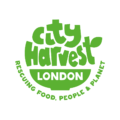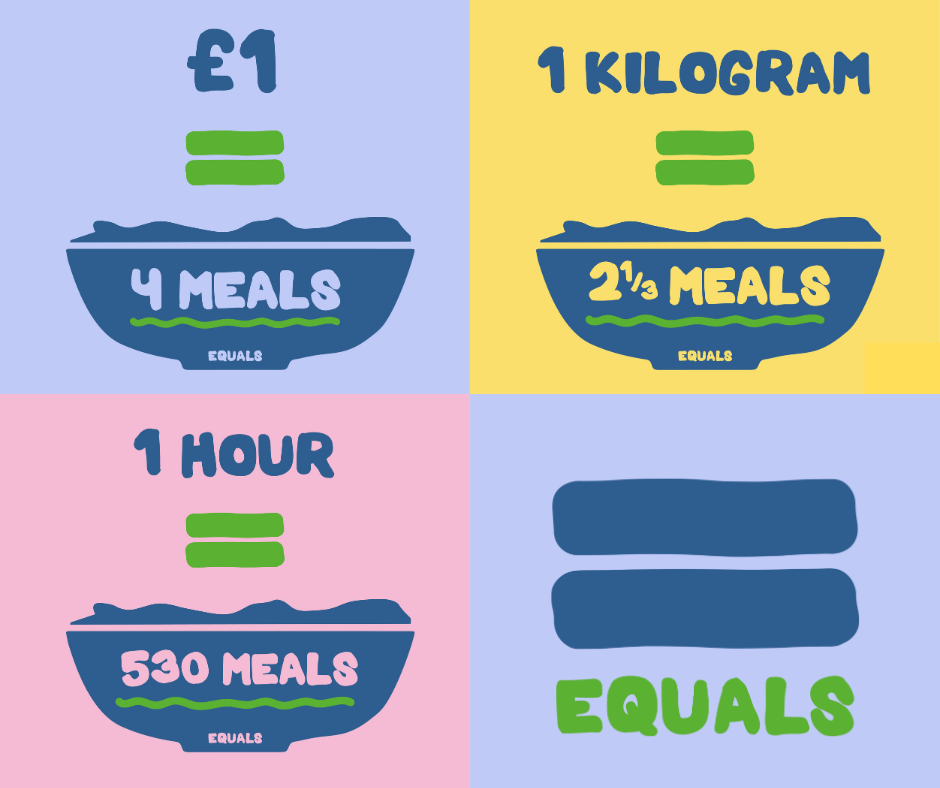The UK’s biggest independent social redistributors team up in a new movement against food surplus, waste and food poverty
On January 29th, representatives from the UK’s biggest independent food surplus redistribution organisations announced the formation of Xcess: The Independent Food Redistribution Network, established to develop national strategies to confront the nation’s food surplus and marshal it for social and environmental purposes.
Xcess will work with the food industry and other agencies to tackle food surplus, its wastage and poverty in the UK’s most deprived communities. Through collaboration of skills, expertise and good practice, the network will focus on unlocking untapped surplus rather than competing for what is already redistributed, and aim to stop food surplus becoming a permanent problem in the UK’s food system. It will work to utilise this edible resource to ensure that nutritious food can be accessed by everyone, creating more resilient communities by supporting people’s health and general wellbeing.
In doing so, Xcess will help to meet the UN Sustainable Development Goal 12.3 which calls on all nations to halve food waste and reduce food loss by 2030 as well delivering vital support for communities in need nationwide.
Members include CEOs and stakeholders from across the redistribution sector: Neil Reid (Blackpool Food Bank), Mark Game (The Bread and Butter Thing), Laura Winningham (City Harvest), David France (Eggcup), Mary McGrath (FoodCycle), Rene Meijer (Food Works), Richard Humphrey (His Church), Corin Bell (Open Kitchen MCR), Astra Towning (Rethink Food), Yvonne Thomson (UK Harvest), Megan Blake (University of Sheffield) and Julian Parfitt (The Anthesis Group).
Xcess members vary dramatically in size, scale and operational model but its collective impact is significant and UK-wide. Amongst its members:
-
- Blackpool Food Bank – is a network of 70 local partners transforming lives locally.
- The Bread and Butter Thing runs a weekly affordable food service for over 12,000 members across the North of England.
- City Harvest – receives and collects food from all over the UK and delivers to 340 community projects and charity groups across London supporting organisations from soup kitchens to women’s refuges.
- Eggcup’s – affordable food service supports members on low incomes across the Lancaster district.
- FoodCycle – works to reduce food poverty and loneliness by turning surplus food into nutritious community meals, all over the country.
- Food Works – repurposes surplus food into meals and grocery boxes to make sustainable food accessible to all in Sheffield.
- HIS Church – is an emergency goods redistribution charity, focused on providing food and supplies to those who need it most. It is currently distributing 200,000 meals a week across a network of 15,000 charities.
- Open Kitchen MCR – is Manchester’s leading conscious caterer, and uses its profits to create nutritious healthy meals for individuals and families in crisis, currently delivering over 1,300 meals a week.
- Rethink Food – works with schools, businesses and communities to educate and empower people to live food secure lives.
- UK Harvest – delivers education programmes alongside its food redistribution operations across the south coast of England and London.
Together, they are united in the common purpose of intercepting edible surplus to create meaningful and lasting social change.
Kicking off its programme of action includes:
-
- Working with the IGD, WRAP and DEFRA to identify untapped sources of surplus food, unpick the barriers to its redistribution and unlock it for usage and consumption.
- Establishing a formal code of conduct for all social food redistribution agencies to ensure continued high standards across all organisations working in the area.
Based on WRAPs major 2016 research, and progress made since that was published, it is estimated that there is the potential to increase redistribution from retail and manufacture by around 190,000 tonnes compared to 2018, approximately 80,000 tonnes from retail and 110,000 tonnes from manufacturing. For the latter, this includes both finished product and more challenging material such as work in progress. This does not include potential edible surplus from both HaFS and primary production. (See breakdown of figures in Notes to Editors).
Estelle Herszenhorn, Special Advisor Food and Drink at WRAP, said “The range of different redistribution organisations operating across the UK is an essential element in preventing good quality surplus food from going to waste. We welcome the formation of Xcess: The Independent Food Redistribution Network as a practical network to share insights and best practice. This will help increase the valuable work these organisations do in helping more people, and preventing more food from going to waste.”
Speaking on behalf of Xcess:
City Harvest, CEO, Laura Winningham explained, “Our commitment to rescuing quality surplus food to help people and planet is greater than ever. In these challenging times, more and more people are unable to nourish themselves and their families. As well as the challenges presented by the pandemic, climate change marches on, with food waste a major contributor. This deeply experienced group of organisations is coming together to ensure that all businesses can safely and reliably redistribute all surplus food.”
The Bread and Butter Thing, CEO, Mark Game explained: “It’s time for us to harness our collective might and align the food surplus redistribution sector to unlock the maximum amount of food surplus available for social redistribution. As a group, we are experts in developing innovative food redistribution models and we are united in our social and environmental aspirations. Together we need to seek cost-effective, meaningful and sustainable solutions which will have lasting impact on the communities we each serve.”
Mary McGrath, CEO FoodCycle added: “Across the UK we waste almost 10 million tonnes of food each year but by working together we can use our common goals of environmental and social change to transform our impact on the UK’s culture of food surplus. During the last three years we have already seen a 180% increase in food surplus redistribution through charities alone but the latest figures suggest another 200,000 tonnes could be added to that.”
Rene Meijer, Food Works summed up: “We’ve invited our colleagues and counterparts to get round the table and cook up a revolution. By collaborating we hope to develop new standards for the industry, explore best working practises and connect with food producers and sellers to ensure that every family has access to healthy, nutritious food.”
Richard Humphrey, Operations Director His Church concluded: “There has never been a more important time for our sector to collaborate in order to ensure more surplus food is redistributed to help vulnerable people. In the UK, we throw away the equivalent of over 20 billion meals in food surplus each year, at a time when the current crisis is having an unprecedented effect on food poverty. It’s absolutely critical that we work together to find secure, ethical, sustainable solutions to redistribute more of this precious resource to where it’s most needed.”
Find out more at xcess.org.uk or follow the network on Twitter @XcessNetwork
Notes to Editors:
Potential for further increases in UK redistribution
Retail and manufacture
Based on WRAPs major 2016 research, and progress made since that was published, it is estimated that there is the potential to increase redistribution from retail and manufacture by around 190,000 tonnes compared to 2018, approximately 80,000 tonnes from retail and 110,000 tonnes from manufacturing. For the latter this includes both finished product and more challenging material such as work in progress.
Hospitality and food service (HaFS)
The HaFS sector supplies around 2% of the overall surplus reported by WRAP as being redistributed, around 1,000 tonnes a year. However, this is likely to be an underestimate, as food surplus from this sector often needs to be redistributed and consumed more quickly and this could lead HaFS businesses to make more use of smaller, local organisations. However, evidence from WRAP voluntary agreement reporting (Courtauld 2025 and the Hospitality and Food Service Agreement) suggests that redistribution is likely to be lower than for retail or manufacture (at least in part because of the challenges associated with prepared food).
There is no published estimate for the potential to increase redistribution from this sector, but the majority of the 820,000 tonnes of food wasted (excluding inedible parts) comes from preparation and plate waste. Around 170,000 tonnes results from ‘spoilage’, and a percentage of this may have (if action had been taken sooner) been suitable for use, or redistribution. Bearing in mind the priority to avoid surplus and waste arising in the first place, and the varied and fragmented nature of the sector, and realistic estimate for additional redistribution might be in the order of a further 10,000 to 30,000 tonnes.
Primary production
WRAP’s research gives an indicative estimate (in fact a range of estimates) for food surplus and waste in UK primary production, based on data from a range of sources and is subject to considerable uncertainty. It’s not comparable with the estimates of food surplus and waste from post-farm gate sector, which are based on UK-data, which is why WRAP does not combine the pre and post-farm gate estimates for food surplus and waste, but presents them separately. There are a few important points to consider:
-
- Much of the material included in the headline 2.0 million tonnes of food surplus, and 1.6 million tonnes of food waste, would not be suitable for redistribution without significant additional processing (over 50% consists of cereals, sugar beet, oilseed rape, DOA livestock, unpasteurised milk etc.).
- Currently there is not a breakdown of food vs inedible parts for the materials arising as surplus or waste from primary production, nor is it known what proportions may be rejected for sale through normal channels due to factors that wouldn’t impact on their ‘edibility’ (such as size specifications, superficial blemishes etc.) vs those that would render the materials unsuitable for people to eat (spoilage etc.).
- It is not therefore possible using the WRAP data to put a reliable estimate on how much food surplus or waste from primary production might be suitable for redistribution.
That said, looking at what may be possibly suitable for human consumption without further processing (primarily fresh produce) and making an assumption that around 10% might be suitable for redistribution give estimates of between around 330,000 and 360,000 tonnes.
Overall potential
Bearing in mind the caveats referred to above, the total amount of food surplus that might be suitable for redistribution in the UK, from farm onwards, could be around 500,000 to 600,000 tonnes, with considerably uncertainty around practical and commercial feasibility of realising over half the lower estimate.
Xcess Mission Statement
Xcess redistribution network core principle is to challenge the generation and use of surplus edible food by collaboration with members and the food industry, sharing information, knowledge and good practice to build impact across the group and not just individual organisations. Our focus is on untapped surplus rather than competing for what is already donated and redistributed, and to stop food surplus becoming a permanent problem by working with the food industry to fix our food system. We work to utilise surplus food to ensure that nutritious food can be accessed by everyone, creating more resilient communities by supporting people’s health and general wellbeing.


